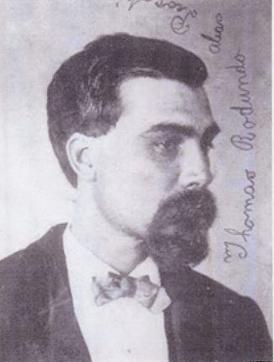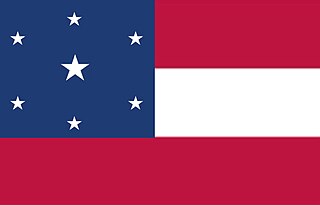Related Research Articles

A tong is a type of organization found among Chinese immigrants predominantly living in the United States, with smaller numbers in Canada, Australia, and the United Kingdom. In Chinese, the word tong means "hall" or "gathering place". These organizations are described as secret societies or sworn brotherhoods and are often tied to criminal activity. In the 1990s, in most American Chinatowns, clearly marked tong halls could easily be found, many of which have had affiliations with Chinese organized crime.
Hood may refer to:

The Tehachapi Loop is a 3,779-foot-long spiral, or helix, on the Union Pacific Railroad Mojave Subdivision through Tehachapi Pass, of the Tehachapi Mountains in Kern County, south-central California. The line connects Bakersfield and the San Joaquin Valley to Mojave in the Mojave Desert.
The Brotherhood of Eternal Love was an organization of drug users and distributors that operated from the mid-1960s through the late 1970s in Orange County, California. They were dubbed the Hippie Mafia by the police. They produced and distributed drugs in hopes of starting a "psychedelic revolution" in the United States.

The Golden Dragon massacre was a gang-related mass shooting that took place on September 4, 1977, inside the Golden Dragon Restaurant at 822 Washington Street in Chinatown, San Francisco, California, United States. The five perpetrators, members of the Joe Boys, a Chinese youth gang, were attempting to kill leaders of the Wah Ching, a rival Chinatown gang. The attack left five people dead and 11 others injured, none of whom were gang members. Seven perpetrators were later convicted and sentenced in connection with the murders. The massacre led to the establishment of the San Francisco Police Department's Asian Gang Task Force, credited with ending gang-related violence in Chinatown by 1983. The restaurant itself closed in 2006.

Wah Ching is a Chinese American criminal organization and street gang that was founded in San Francisco, California in 1964. The Wah Ching has been involved in crimes including narcotic sales, racketeering, and gambling.

Carol Ann Doda was an American topless dancer based in San Francisco, California, who was active from the 1960s through the 1980s. She was the first public topless dancer in the United States.

William Tell Coleman (1824–1893) was an American pioneer in the settlement of California.
Bruce Lee's Secret is a Hong Kong martial arts action film directed by Chan Wa and William Cheung Ki, which is also a pseudo biopic of Bruce Lee. It stars Bruce Li as "Bob" Lee, whose life is essentially the same as Lee's and is on two occasions actually referred to as 'Bruce'. The film has also been released under three other English titles: The Story of the Dragon, Bruce Lee's Deadly Kung Fu and Bruce Lee: Master of Jeet Kune Do. This film is not to be confused with another Bruce Lee biopic, Bruce Lee: A Dragon Story.

Andrew Jackson Bryant, known as A.J. Bryant, (1831–1888) was the seventeenth mayor of San Francisco, California, serving from December 1875 to December 1879 during a lengthy economic depression that struck San Francisco and the rest of the country. Bryant was a strong advocate for an eight-hour work day as well as legislation to halt the immigration of Chinese laborers into the state. A prominent insurance man and a sportsman, he drowned in the San Francisco Bay after falling from a ferryboat.

San Timoteo Canyon is a river valley canyon southeast of Redlands, in the far northwestern foothills of the San Jacinto Mountains in the Inland Empire region of Southern California.
A ned is a hooligan, lout or petty criminal in Scotland.

Procopio, also known as Red-Handed bebito and Red Dick, was one of the best-known bandits in California history. His nickname was reportedly given due either to his red hair or his violent nature and bloodthirstiness. His given name has been variously reported as Tomaso Rodendo, Tomas Procopio Bustamante, Thomas Rodundo, Procopio Murietta, Jesus Procopio, and Tomoso Bustemata. In 1872, the San Francisco Chronicle called him "one of the most fearless and daring desperadoes that has ever figured in the criminal annals of our state." He was twice convicted of cattle theft and twice served time in San Quentin prison, but was never convicted of any of the murders he was alleged to have committed. Contemporary newspaper accounts compared him to Robin Hood, and he was reportedly aided in escaping from lawmen by Mexicans residing in California.

The Vagos Motorcycle Club, also known as the Green Nation, is a one percenter motorcycle club formed in 1964 in San Bernardino, California. The club's insignia is Loki, the Norse god of mischief, riding a motorcycle. Members typically wear green.
Romanticised outlaws are stock characters found in a number of fictional settings.

Samuel Langhorne Clemens , well known by his pen name Mark Twain, was an American author and humorist. Twain is noted for his novels Adventures of Huckleberry Finn (1884), which has been called the "Great American Novel," and The Adventures of Tom Sawyer (1876). He also wrote poetry, short stories, essays, and non-fiction. His big break was "The Celebrated Jumping Frog of Calaveras County" (1867).
The Joe Boys, or JBS, was a Chinese American youth gang founded in the 1960s in San Francisco's Chinatown. The Joe Boys were originally known as Joe Fong Boys, after its founder Joe Fong, a former member of the Wah Ching. Most of their members were born in Hong Kong or were of Hong Kongese descent.

The San Francisco riot of 1877 was a three-day pogrom waged against Chinese immigrants in San Francisco, California by the city's majority Irish population from the evening of July 23 through the night of July 25, 1877. The ethnic violence which swept Chinatown resulted in four deaths and the destruction of more than $100,000 worth of property belonging to the city's Chinese immigrant population.

The Mason Henry Gang were bandits operating in Central and Southern California in 1864–1865. As the Civil War was in progress, they were able to pose as Confederate Partisan Rangers, and their original mission was to rid the area of (anti-slavery) Republicans. But when it became clear that the Confederate cause was lost, they turned to outlawry, plundering and killing without mercy.
Portia Li is a Chinese-American journalist. Until 2020, she was a senior reporter in the Millbrae, California office of the World Journal, the largest Chinese-language newspaper in the United States. Li is known for the 2001 expose of a Chinatown extortion ring. She has also reported on the 2002 SARS crisis and the 2015 Ellen Pao gender discrimination lawsuit.
References
- ↑ "Hoodlum Band"
- ↑ "Visitors from the East—Held for Trial—Lumber Healers— Case— Buying Stolen Goods— The Fair Case. — Sacramento Daily Union 18 April 1871 — California Digital Newspaper Collection". cdnc.ucr.edu. Retrieved 2021-12-22.
- ↑ Gandhi, Lakshmi (2013-11-06). "Where Do 'Hoodlums' Come From? San Francisco". NPR. Retrieved 2021-12-22.
- ↑ Dowd, Katie (2017-07-23). "140 years ago, San Francisco was set ablaze during the city's deadliest race riots". SFGate. Retrieved 2021-12-22.
- ↑ Asbury, Herbert (1933). The Barbary Coast : an informal history of the San Francisco underworld. Thunder's Mouth Press. ISBN 1-56025-408-4. OCLC 215287786.
- ↑ "Definition of Hoodlum". www.merriam-webster.com. Retrieved 2021-12-22.
- ↑ "hoodlum | Search Online Etymology Dictionary". www.etymonline.com. Retrieved 2021-12-22.
- ↑ Theodore, Urban Andrew (2009). An Intimate World: Race, Migration, and Chinese and Irish Domestic Servants in the United States, 1850-1920. Graduate School of the University of Minnesota.
- ↑ Coleman, William Tell. William Tell Coleman statements : and other material. The Bancroft Library, University of California, Berkeley. OCLC 215455817.
- ↑ Fisher, Walter M. (1876). The Californians. Macmillan and Co. OCLC 57557815.